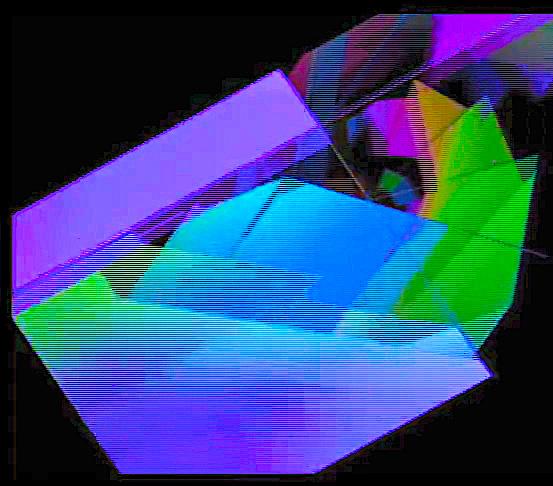Open Waters Review - January 13th/2012
Opens Waters concert ranges from self-conducting to extended vocals
Ever since American composer John Cage performed in the middle of the last century, we have had to rethink noise.
As Canadian contemporary composer R. Murray Schafer put it, noise is any sound we don’t want to hear.
Cage went all the way down that road until he reinvented silence in a piece call 4’ 33." The performer took up an instrument but only pretended to play or sat perfectly still.
Far from destroying sound, Cage broke silence wide open. The concert hall was filled with background sounds: the squeaks, the distant traffic, the hum of heating fans, the ticking of rooms warming up, people squirming, breathing, snuffling, feet shuffling, clothes rustling.
Cage forced us to recognize that not only did silence not exist but the environment was on stage and in your ear.
In the ’60s, American inventor Robert Moog gave this strange new world of no-longer-noise, the portable synthesizer. He triggered his synthesized sounds with a piano keyboard but it wasn’t long before any acoustic instrument could be used, including the human voice.
What was next? Dream synthesizers?
Well, right on, sort of. Performers were transmogrified by visions of synthetic sugar plums dancing with noisemakers as they sought ways to make their instruments squeak and click and tap and squeal. All they needed to turn their visions into compositions was a method. They found it in spontaneous improvisation — on the spot and in the moment.
Thursday night in the Dunn, while the weather was misbehaving itself, the Open Waters Festival 2012, billed as a "North Atlantic showcase of new and improvised music," presented the first of three concerts through to Saturday night.
Andrew Reed Miller, a double-bass player from Fredericton, an impressive player, accompanied himself with signal processors, extended instrumental tricks and a collage of psychedelic imagery as well as fragmented video clips of conductors like Bernstein and Maazel and (I think) Toscanini. He conducted himself with gestures from the invitational to the comically dismissive.
The name of the piece, all in capital letters, was L-EDGY, alluding perhaps to the disaster awaiting every would-be improviser around the corner of the next moment. It was colourful, funny and very entertaining.
Next came Sanctuary’s Peter Togni (piano), Jeff Reilly (bass clarinet) and Christoph Both (cello), improvising in the analog purity of Gregorian chant. After 12 years, Sanctuary has achieved the art of thinking, often beautifully, as one.
Next in was the Newfoundland trio Spanner. Paul Bendza, a truly pensionable Soundscape veteran of making it all up, playing clarinet, sax and his own extended vocalisms, was aided and abetted by inventive percussionist Rob Power and less-is-more pianist Bill Brenner.
As the wild man of the trio, Bendza’s robust excursions were exquisitely set like precious stone by Power’s imagination for the sound of bowls and bells and of brushes on the head of a horizontal bass drum and Brenner’s choice melodic lines and harmonic voicing on acoustic piano.
They were followed by the Paul Cram Trio. Cram burst into sound on tenor sax as though frantically trying to salt the tail of the Apocalypse by way of stratospheric star bursts and foghorn-timbre low notes, as is his wont. Danny Parker on bass and Doug Cameron on drums went the other way with an improvised jazz line played as discretely as though they were in another room. Then they came together. Fascinating.
Next Cram and Cameron were joined by extended vocalist Tena Palmer and guitarist and harmonica player Arthur Bull playing as the ensemble Aperture. On clarinet now, Cram’s interaction with Palmer was inspired. He is a master of the artistic squeak on clarinet, notes almost too high to be notated, while Palmer is a virtuoso with an ear like pure crystal and a brilliantly mercurial imagination.
The final group was Zogaku, featuring guitarist Geordie Haley and keyboardist Tim Crofts on an Electro 3 Nord electronic piano-synthesizer. It is a pity to take Crofts away from straight keyboard. On piano the limitations of the available sounds plumb the depths of his extraordinary imagination. But with the synthesizer his creativity explores new territory despite his subdued keyboard inventions. A remarkably fine trio.
Stephen Pedersen is a freelance arts writer who lives in Halifax.
—
posted




